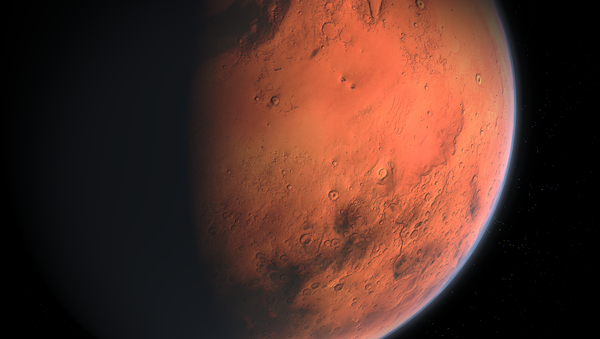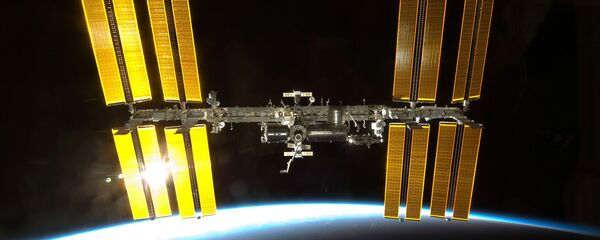What we call Martian "soil" is in fact barren dust and rock that would require a serious boost if humans genuinely plan to establish farms on Mars and grow potatoes there like Matt Damon did in "The Martian." In science terms, "soil" has to contain elements of organic matter from plants and animals.
Last year, a research group from Wageningen University in the Netherlands successfully grew 10 crop species, including tomatoes, rye and radishes, using a Martian soil simulant pumped up with fertilizers such as pig slurry. The researchers then added the manure to samples of the Mars simulant and to samples of "silver sand" where they were growing arugula lettuce and analyzed the outcome.
When it comes to establishing a sustainable agricultural ecosystem on Mars, "nothing can be allowed to get lost, including the dead plant material we do not eat," Dr. Wamelink at Wageningen University told Sputnik
"The worm forms a part of the small cycle existing of plants, worms, bacteria, fungi, humans and bumblebees. The worms chew the organic matter, mix it with the soil and excrete it. Bacteria will then further break down the organic matter releasing the nutrients for the plants. That has to be brought back in the soil and worms do just that," Dr. Wamelink explained.
The worms, Dr. Wamelink said, have an important job digging burrows, aerating the soil which helps the water reach the roots, "which is important for plant growth."
Dozens of crops are already being grown in various experiments using Martian soil, including potatoes, tomatoes, green beans, peas, cress, carrot and radishes, however this was the first time a team of Biologists in the Netherlands substituted pig slurry for human feces.
"That set-off the growth. We know that adding organic matter also helps and the work of the worms add to that as well. This implies that human feces has to be brought back in the system and that also the feces during the travel have to be stored for fertilizing the Martian soil."
"So Mark Watney in the Martian was right to add poop to the soil to cultivate his potatoes," Dr. Wamelink told Sputnik.
Altogether, the tests showed that the combination of worms and pig slurry helped the plants grow in Martian soil, which raises hopes for our ability to grow greens on the Red Planet sometime in the future.





